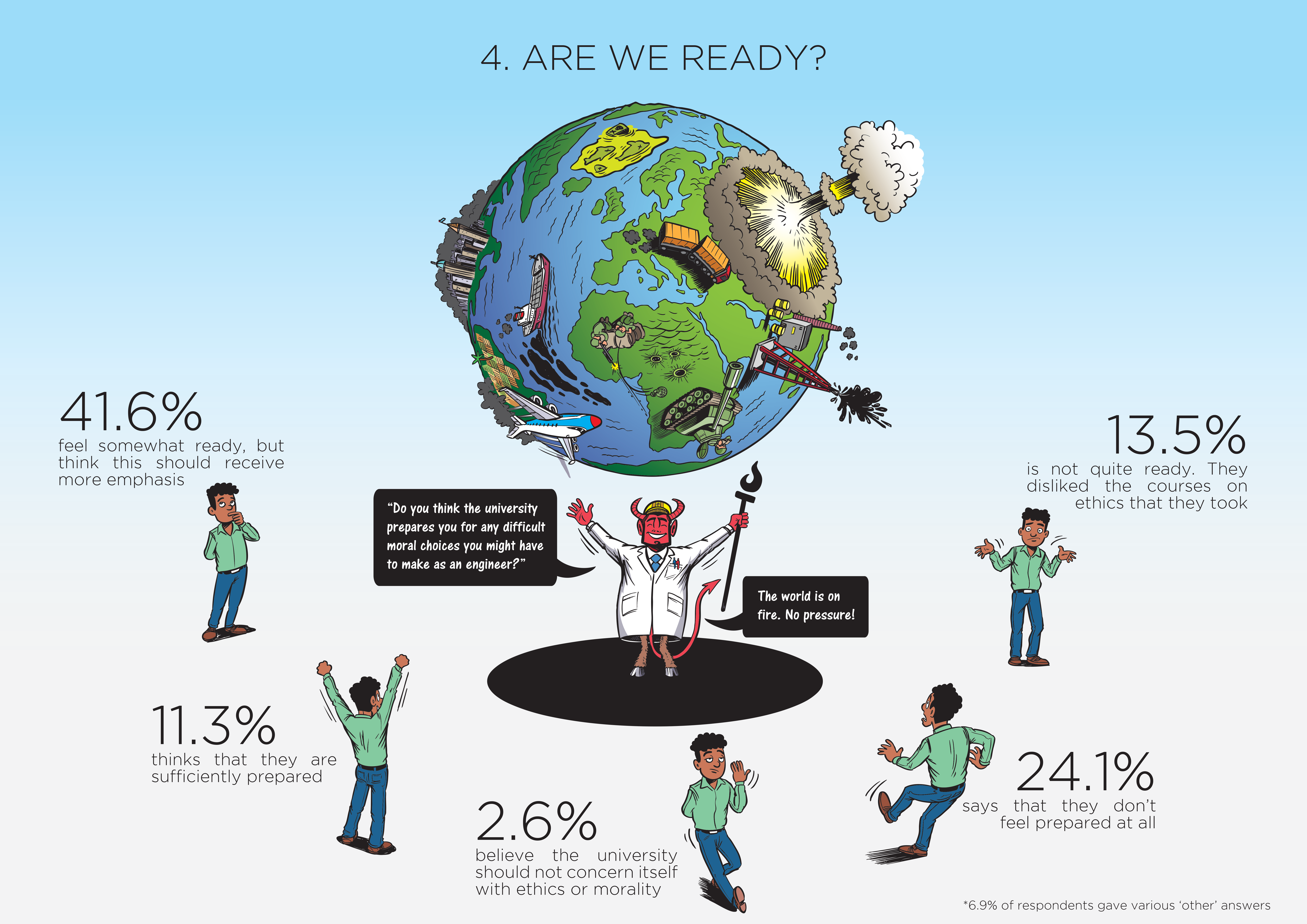On Monday September 5, 2016 the Virtues & Vices of Engineering exhibition opened in the Aula’s Entrance Hall. On display until September 29th, the vibrant illustrations by Stephan Timmers portray the results of the SG Conscience Survey conducted by Studium Generale (SG) in February 2016.
The survey purpose was to elicit the views of TU Delft students on moral dilemmas they face, or may face, in their academic and professional lives. The survey probed various issues to take the temperature on to what extent students care about the application of technologies they develop during careers in the fields of science, technology and engineering. In an interesting twist, the survey also queried the extent to which students feel their university education has prepared them to address ethical or moral dilemmas in their education or employment settings.
Of the 300 respondents, 55.1% were bachelor’s and 44.9% were master’s students respectively. As Klaas Pieter van der Tempel of SG and survey organiser noted, the students’ open responses in particular offered remarkable insights into their dream and doom future scenarios.
The illustrations by Timmers were commissioned to make the results accessible through provocative images conjured by students’ responses. Further reflection about the significance of the survey findings is warranted in Van der Tempel’s opinion as they express what he calls a “moral high ground vibe”. The emerging picture is one of students who care about the application of their work and its impact on society (48.8%). A majority feel compelled (58.8%) to follow their own instinct. If confronted with malfeasance on the job, 50.4% stated that they would speak up regardless of personal consequences.
Despite this picture, only 11.3% of respondents felt sufficiently prepared by their education to address such dilemmas. One exhibition visitor, Yeshembel Melese of the Faculty of Technology, Policy and Management, said, “Ethics and moral issues so often take a back seat on the job.” Moreover, Stendert Laan of the Faculty of Civil Engineering and Geosciences said, “It is great to see how many students feel responsible as future engineers, I am surprised at the high number of students who would consider their future career first before listening to their conscience.”
To widen the discussion, SG sent the results to prospective employers, the university Rector and Executive Board as well as the Netherlands ministries of education, defence and environment requesting their comment. Available replies from this group may be read at the exhibition alongside space for visitors to join the discussion.



Comments are closed.